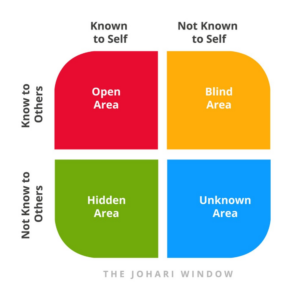I was recently asked this question: “Ram, you’ve been into leadership coaching for nearly a decade now. What has been the biggest lesson you’ve learned in this time that has made a monumental shift for you?”
There have been so many lessons that I’ve learned over these years about effective leadership coaching, so I sat down to contemplate for a while to figure out which has been the biggest one. And then it struck me: It was all about the importance of client selection.
Let me explain.
Well Begun Is Half Done
In the world of leadership coaching, plenty of focus is usually put on the coach – their skills, their certifications, what level they’re at (ACC, PCC, MCC, etc.). I, however, really resonate with what Marshall Goldsmith says when it comes to coaching.
He has often made his view very clear that in coaching it is less about the coach and more about the leader or the person who is getting coached.
When it comes to independent coaching, focusing on choosing the right client has been the game-changing coaching mantra for me. And in my opinion, if you get that bit right, you get a lot of things right in the coaching engagement. Because for a person who is seeking answers, is hungry to reach a certain desired state, is looking to change, grow and improve, for them everything that comes their way becomes an aid.
Whereas for a person who is not willing, everything becomes an impediment.
For instance, if you were to coach a top-ranking player in the sports industry, that person is already hungry to stay on top or to get even better. Whereas, someone who is right at the bottom and is unmotivated and doesn’t possess the skills, is not inspired enough to get coached to get better.
So, the one thing it always comes down to is finding a client who is hungry enough to change and to get coached. If this is not the case from the beginning, then no matter how great a coach you are and how amazing your leadership coaching framework or methodology is, it is not going to matter.
So, when a person is evaluating and looking to hire a coach, you as an independent coach should not let the ball be completely in their court. Remember, you need to evaluate them just as much as they need to evaluate you before both of you join forces.
As the proverb goes, “well begun is half done”. And in the context of coaching, whether it is life or leadership coaching, choosing the right coaching client is a coaching engagement that’s well begun.
Discover Their Willingness for Leadership Coaching
One important mantra for leadership coaching is, how to ascertain the readiness of a potential client? That’s what discovery sessions are for. These discovery sessions are perfect to figure out a) where the client is, b) where they want to go, c) why it is important to them, and d) the steps they are willing to take to get there.
Sometimes the client may come with multiple issues they want to address and as part of the discovery session, you can help bring clarity as to what is most urgent for them to start with.
Another aspect to incorporate in these discovery sessions is to ask ‘why is this important right now?’. Question them on the need to address this right this very second. A few follow-up questions can be ‘what will happen if you don’t solve this right now?’ or ‘what is lost if you don’t solve it?’
Things to Look Out For
When you’re in these discovery sessions, there are 3 things to look out for that will give you an idea of whether or not the client is going to be ready for leadership coaching and to do the work and change.
1. Are they inward or outward-focused?
When a prospective coaching client is speaking about their issue, pay attention to whether they are perceiving the problem to be entirely external or internal. If you discover that the person in front of you is putting everything on to external factors, i.e., the job, the boss, the weather, and whatnot, then you know that this is a matter of concern. They are not taking ownership in any way of the issue at hand and are quick to blame external circumstances for their problems, refusing to accept that solution in fact may be within them. So, watch out for clues of victim mentality.
And just a disclaimer, this is not to put a prospective coaching client under ‘good’ or ‘bad’. It is just to ascertain the willingness of the client, to ensure that they are ready to do the work to get to where they wish to go. How much accountability and ownership is the person prepared to take for their own growth?
2. Are they clear on what they want to solve?
Sometimes a client may come with wanting to solve multiple issues, all of which seem very urgent on the surface. But on your discovery call, you can probe and enquire to find out what lies at the core of these issues they are speaking about and go deeper. In doing so, the client is forced to think underneath the surface and discover what is truly urgent and thus gain clarity around what they wish to get coached on in sessions with you. Gaining this clarity is massively important so that the client is truly convinced that they are going in the right direction and for you as a coach to know your starting point and how to judge the success of coaching engagement.
3. Help them identify their blind spots
This is where I want to bring in what is known as the Johari Window. It can help people understand their relationship with themselves and others.

In the Johari Window, there are four quadrants –
- The red quadrant is where all that is known to the self is also known to others. It is common knowledge that is clearly perceivable or has been communicated openly.
- The green quadrant is the area that represents that which is known to the self but has been concealed to others. It may be a secret or fact that a person chooses to keep or happens to be confidential.
- The blue quadrant denotes that which is unknown both to the self as well as others.
- The yellow quadrant is what is interesting as it denotes that which is known to the other but unknown to the self, typically known as the blind spot. This is the area that the client may be blissfully unaware of, but ought to know. This is where you can bring in your coaching expertise to make the client aware of their blind spots. This is simple and can be done by reaching out to the client’s close acquaintances and colleagues and asking them three simple questions: one, what is this person good at? Two, what does this person need to do better or differently? And three, what advice would you have for them?
What this does is bring up things that are hidden, which may be more important than the things that are easily coming up in your coaching engagement by virtue of the client directly.
Once these above factors are taken care of, then the rest of the coaching journey has far greater chances of successful impact, value, and result.
Finally, Be Relentless
Let’s say you are convinced about a certain coaching client and their willingness to do the work. After you onboard them into the coaching journey, be relentless in ensuring that the client is absolutely satisfied.
I would say, do not move forward in the coaching journey until your client is a hundred percent convinced about the goal that they wish to achieve, even if time is ticking, sessions are passing, and it appears that progress is not being made in the way it was initially assumed it would.
Once you have nailed these leadership mantras, the rest of the leadership coaching engagement will be absolute gold!
About Simply.Coach
Simply.Coach is an enterprise-grade coaching software designed to be used by individual coaches and coaching businesses. Trusted by ICF-accredited and EMCC-credentialed coaches worldwide, Simply.Coach is on a mission to elevate the experience and process of coaching with technology-led tools and solutions.

Executive Coach & Co-founder of Simply.Coach
Recognised as one of the Most Talented Coaching Leaders in India by CHRO Asia, Ram is an ICF certified coach with more than a decade of coaching experience Before co-founding Simply.Coach in 2020, Ram worked across the gamut of organisations, from start-ups through to global MNCs. Having served as VP and Country Manager for Publicis Sapient, Ram’s corporate expertise helps him focus on positive change to empower leaders to reach their goals









